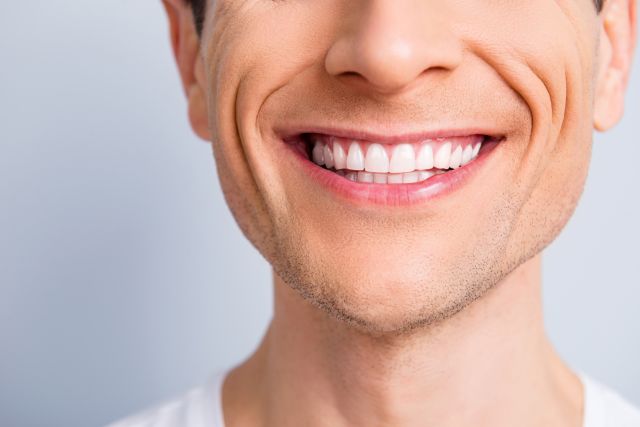Updated on November 22, 2022.
A variety of factors in our everyday lives, including food and drink, smoking, and certain medications, can discolor our teeth. It’s perhaps no surprise, then, that approximately 37 million Americans have used teeth whitening products or procedures in recent years, according to Statista Research. Despite its popularity, though, teeth whitening has attracted its share of controversy.
Before you run out for a lunchtime tooth-lightening session at the dentist’s office or apply a set of whitening strips to your bicuspids at home, here are four things you should know about chemical treatments for your smile:
It's not always painless
The most common side effects of tooth-whitening, whether it's a bathroom DIY or a professional job, are sensitive teeth and irritated gums. People who get the job done at the dentist’s office may experience higher levels of sensitivity, according to a 2021 study published in the Journal of Applied Oral Science, possibly due to the higher concentrations of hydrogen peroxide used in professional applications.
Usually, the discomfort is short-lived, but to avoid it in the first place, you can try using a toothpaste that reduces sensitivity for several days before your procedure. Keep it up for a few days or weeks afterward, too. Taking an ordinary painkiller (like ibuprofen) before a bleaching session helps, as well, according to the American Dental Association (ADA).
Think twice about bleaching at the mall or using DIY kits
Although at-home whitening kits cost hundreds of dollars less than having a dentist whiten your teeth, you may be better off leaving it to the experts. The ADA recommends that patients have a professional evaluate them for any underlying dental issues before starting whitening treatment. Cavities, for example, could be made worse by bleaching. If you use home whitening kits, make sure that they are approved by the ADA.
Take breaks
There's a reason some products should be used only four times a year at most: Overuse is a concern. Some lab research suggests that whitening may damage the outer surface of the teeth (the enamel) or the hard tissue that lies beneath (the dentin). If tooth-whitening becomes as regular a part of your grooming routine as a monthly haircut, consult with a dentist on whether your teeth are in healthy shape.
Ask your dentist what's possible
Bleaching can make your teeth a few shades whiter—especially if coffee, tea, tobacco, or aging are to blame for that off-color grin. But the results are less reliable if your teeth were stained by the antibiotic tetracycline or by exposure to excessive fluoride in childhood. Also, if you have tooth-colored fillings or crowns, bleaching can cause a color mismatch. Talk to your dentist about whether a possible variation in "whites" in your mouth will be noticeable.
Children should probably refrain from using whiteners. While the American Academy of Pediatric Dentistry suggests that more research is needed before specific recommendations can be made, many experts advise that children younger than 14 (or those who still have their baby teeth) should avoid whitening. People with existing dental conditions should also hold off on the procedure. When in doubt, consult with a dentist on whether whitening is right for you.







